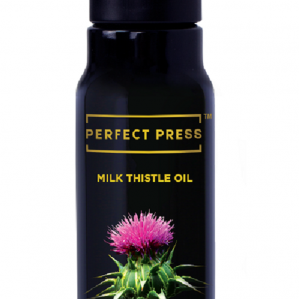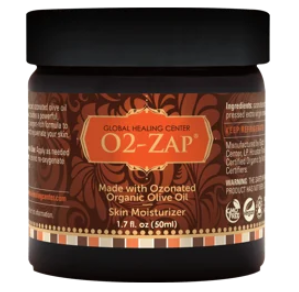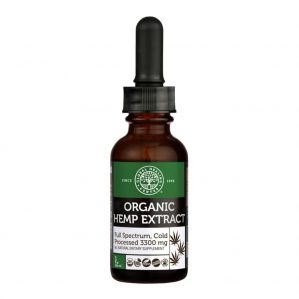What You Need To Know About Soy – The 6 Devastating Ways Soy Disrupts and damages Hormone Balance
The Impact of Soy on Hormone Balance: Separating Fact from Fiction
Overview
Soy has become a staple in the American diet, with its consumption skyrocketing over the past few decades. It is touted as a healthful food, rich in
What is Soy?
Soy, scientifically known as Glycine max, is a species of legume native to East Asia. It is one of the most widely cultivated and consumed crops globally, known for its versatile uses in both human and animal nutrition. Here’s an overview:
- Botanical Characteristics:
- Soybeans belong to the legume family Fabaceae and the subfamily Faboideae.
- The plant typically reaches a height of 1 to 1.5 meters and produces pods containing seeds (soybeans).
- Nutritional Composition:
- Soybeans are rich in protein and oil, making them a valuable source of nutrition.
- The nutritional composition includes protein, healthy fats, carbohydrates, dietary fiber, vitamins (such as B-vitamins), and minerals (such as iron and calcium).
- Uses of Soy:
- Food Products: This legume is a key ingredient in a variety of food products, including tofu, soy milk, soy sauce, soybean oil, and soy protein isolates.
- Animal Feed: Soybean meal, a byproduct of soybean oil extraction, is a major component of animal feed for livestock.
- Industrial Uses: These legumes are used in the production of industrial products, including biodiesel and various chemicals.
- Health Benefits:
- Consumption of this legume has been associated with several health benefits, including heart health due to its unsaturated fats, protein content, and compounds called isoflavones that may have antioxidant properties.
- Genetically Modified Soy:
- A significant portion of the world’s soybean production is genetically modified (GM), with traits such as herbicide resistance (e.g., Roundup Ready soybeans). This is the number one reason why I do not consume products made of this legume or animals that are fed it’s products.
Genetically Modified Soybean Organisms
As of my last knowledge update in January 2022, it’s important to note that the majority of these legumes produced worldwide are genetically modified (GM). The most common genetically modified soybeans are engineered to be resistant to the herbicide glyphosate, commonly known as Roundup, allowing for more effective weed control. These legumes are commonly referred to as Roundup Ready soybeans.
Please note that the prevalence of genetically modified crops can change over time, and new developments may have occurred since my last update in January 2022. It’s advisable to check more recent sources for the latest information on the status of genetically modified soybeans.
The Six (6) Devastating Ways Soy Disrupts and Damages Hormone Balance
While there is some controversy and misinformation surrounding the effects of this legume on hormone balance, it’s important to note that many scientific studies suggest that moderate consumption of this legume is generally safe and may even have health benefits. Soy contains compounds called phytoestrogens, specifically isoflavones, which are plant-derived compounds that can mimic the effects of estrogen in the body. However, the extent to which these compounds affect hormone balance and health is still a subject of research.
Here are some key points to consider:
- Estrogenic Effects:
- This legume contains phytoestrogens, which can bind to estrogen receptors in the body. Some studies have suggested that high levels of phytoestrogen consumption may have estrogenic effects, potentially affecting hormone balance. However, the actual impact on human health is complex and may vary.
- Thyroid Function:
- There have been concerns about this legume’s potential impact on thyroid function. Some studies suggest that this legume may interfere with thyroid hormone synthesis and absorption. However, the evidence is not conclusive, and the effects may depend on individual factors and the specific form of this legume consumed.
- Reproductive Health:
- There is ongoing research on the potential effects of this legume on reproductive health, particularly in men. Some studies have raised concerns about this legume’s impact on sperm quality and testosterone levels, but results are inconsistent, and more research is needed.
- Breast Cancer Risk:
- There has been concern about the potential link between this legume consumption and breast cancer due to the estrogen-like effects of phytoestrogens. However, many studies suggest that moderate consumption this legume may be associated with a reduced risk of breast cancer.
- Endocrine Disruption:
- Some studies have suggested that the isoflavones in this legume, which have estrogen-like properties, may interact with estrogen receptors in the body. This has led to concerns about potential endocrine disruption. However, the extent of these effects and their clinical significance are still debated.
- Reproductive Health in Men:
- There have been concerns about the impact of this legume on male reproductive health, including potential effects on sperm quality and testosterone levels. However, systematic reviews and meta-analyses have generally not found significant adverse effects in men consuming soy products.
It’s crucial to interpret scientific studies with caution and consider the overall body of evidence. The effects of this legume can vary among individuals, and moderation is key. If you have specific concerns about consumption of this legume and hormone balance, it is advisable to consult with a healthcare professional who can provide personalized advice based on your health status and medical history.
Insecticides and Herbicides Use
This legume, particularly genetically modified (GM) varieties, are often cultivated with the use of specific herbicides and insecticides. One resource from the USDA provides information on the adoption of genetically engineered crops in the United States, including this legume. It discusses the prevalence of herbicide-resistant GM soybeans and impact on health. A report by Charles Benbrook provides an analysis of trends in glyphosate herbicide use in the United States and globally.
Glyphosate is a commonly used herbicide, and its use is associated with the cultivation of genetically modified glyphosate-resistant crops, including this legume. The types of pesticides used have different but have direct effects on health. Yet, another publication discusses glyphosate resistance in weeds, which has implications for the use of glyphosate in this legume and other crop cultivation.
It’s important to note that while the use of herbicides and insecticides in agriculture can have benefits in terms of crop yield and pest control, there are also concerns about the environmental impact and potential health effects. Sustainable and integrated pest management practices are being explored to reduce reliance on chemical inputs. As with any agricultural practice, the impact of herbicides and insecticides can vary depending on factors such as application methods, timing, and local conditions.
The Complexities of Hormone Disruptors
Before we dive into the specifics of this legume and hormone balance, it’s important to understand the concept of hormone disruptors. Hormone disruptors, also known as endocrine disruptors, are industrial chemicals that can interfere with the normal functioning of hormones in the body. They can mimic or block the action of hormones, leading to imbalances and potential health problems.
Hormones and Hormone Disruptors: The Mixed Messages
Hormones play a crucial role in regulating various bodily functions, including reproduction, growth, and metabolism. They are produced by the endocrine system and act as messengers, communicating with different organs and tissues. However, hormone disruptors can interfere with this delicate balance by disrupting the production, release, transport, metabolism, binding, action, or elimination of natural hormones.
The Concerns Surrounding This Legume and Hormone Disruption
While this legume is often praised for its health benefits, some studies suggest that consuming large amounts of this legume, particularly in the form of soy isoflavones, may have adverse effects on hormone balance and reproductive health in women. Soy isoflavones are plant compounds that can mimic estrogen in the body. Animal studies have shown that high doses of these isoflavones can lead to reduced fertility, abnormal embryo development, and early puberty.
The Rise of Soy Consumption and Potential Risks
The consumption of this legume in the United States has significantly increased over the past few decades. Soy-based products, such as infant formula, soy milk, and tofu, have become widely available and popular among consumers. However, the long-term effects of consuming high amounts of this legume are still not fully understood. While some studies suggest potential risks, such as increased estrogen levels and hormone disruption, more research is needed to draw definitive conclusions.
Soy and Female Fertility: Sorting Fact from Fiction
One of the primary concerns associated with the consumption of this legume is its potential impact on female fertility. Animal studies have shown that high doses of soy isoflavones can lead to reduced fertility and abnormal embryo development in female mice. However, it’s important to note that these studies often use much higher doses of isoflavones than what humans would typically consume. The effects of moderate consumption of this legume on human fertility are still not well-established.
Soy and Reproductive Development in Women
In addition to fertility concerns, the consumption of this legume has also been linked to early puberty and irregular menstrual cycles in women. Animal studies have shown that high doses of soy isoflavones can disrupt the normal development of the reproductive system, leading to early puberty and hormonal imbalances. However, the relevance of these findings to humans is still unclear, and more research is needed to understand the potential risks.
Soy and Thyroid Function: Debunking the Myths
Another area of concern is the potential impact of this legume on thyroid function. Some studies suggest that soy isoflavones may interfere with the production of thyroid hormones, leading to hypothyroidism. However, the evidence is inconclusive, and the majority of studies have not found a significant association between the consumption of this legume and thyroid disorders in humans. It’s important to note that the effects, if any, may vary depending on individual factors such as genetics and overall health.
Balancing the Benefits and Risks of Soy Consumption
While there are concerns surrounding this legume and hormone disruption, it’s essential to consider the overall balance of risks and benefits. The consumption of this legume has been linked to various health benefits, including reduced cholesterol levels and a lower risk of certain types of cancer. Additionally, this legume is a valuable source of plant-based protein and can be a nutritious alternative to animal products. Moderation and variety in the diet are key when it comes to reaping the potential benefits of this legume while minimizing potential risks.
The Importance of Individual Variability
It’s crucial to recognize that individual responses to the consumption of this legume may vary. Some people may be more sensitive to the effects of soy isoflavones, while others may not experience any noticeable changes. Genetics, hormonal status, and overall health can all influence how the body responds to this legume and its potential impact on hormone balance. It’s always advisable to consult with a healthcare professional for personalized advice regarding the consumption of this legume.
How to reverse the negative effects of Soy Consumption naturally?
If you believe you are experiencing negative effects from the consumption of this legume and want to make dietary changes, it’s advisable to consult
- Diversify Your Diet:
- Rather than relying heavily on a single food source, aim for a diverse and balanced diet. Include a variety of fruits, vegetables, whole grains, lean proteins, and healthy fats.
- Choose Whole Soy Foods:
- Opt for whole non-GMO, organic, and fermented soy foods rather than processed or highly refined soy products. Whole soy foods include tofu, tempeh, edamame, and fermented soy products. These contain the complete nutritional profile of this legume without added sugars or preservatives. Again, look for the non-GMO and organic variety.
- Moderation is Key:
- Consume soy products in moderation. Excessive intake of any food, including this legume, may lead to imbalances. Pay attention to portion sizes and overall dietary variety.
- Consider Fermented Soy:
- Fermented soy products, such as miso, tempeh, and natto, undergo a fermentation process that may break down certain compounds and enhance nutrient absorption. Some individuals find these easier to digest.
- Choose Non-GMO and Organic:
- If possible, choose non-genetically modified organisms (GMO) and organic soy products to minimize potential exposure to pesticides and genetically modified varieties.
- Monitor Thyroid Health:
- If you have concerns about this legume ‘s impact on thyroid function, consider monitoring your thyroid health regularly. Consult with a healthcare professional to assess thyroid hormone levels and discuss any potential adjustments to your diet.
- Include Cruciferous Vegetables:
- Some studies suggest that cruciferous vegetables like broccoli, cauliflower, and Brussels sprouts may have a positive impact on hormone metabolism. Including these vegetables in your diet may offer additional support.
- Stay Hydrated:
- Adequate hydration is important for overall health. Make sure to drink enough water throughout the day.
It’s crucial to note that the effects of this legume can vary among individuals, and scientific evidence on the potential negative effects is not conclusive. If you have specific health concerns related to soy consumption, it’s essential to seek guidance from a qualified healthcare professional who can provide personalized advice based on your medical history, current health status, and dietary preferences.
After Thoughts
The relationship between soy consumption and hormone balance is complex and still not fully understood. While some studies suggest potential risks associated with high doses of soy isoflavones, the majority of research indicates that moderate consumption of this legume is unlikely to have significant adverse effects on hormone health. As with any dietary choice, moderation and individual variability should be considered. A balanced and varied diet, including a wide range of nutrient-rich foods, remains the cornerstone of overall health and well-being. I personal avoid this legume and its products because it is difficult to find a reputable brand that is truly non-GMO and free of herbicides like glyphosate. The glyphosate contamination is enough for to stay away from its use.
For natural and healing remedies, products, and supplements to help you live your most optimal healthy life, visit our store here!
Remember: Own Your Health!
If you enjoyed the information presented in this article, Please Share It. Help us reach more people and keep this website going! Thank you!
Note: The information provided in this article is for educational purposes only and should not be considered medical advice. Please consult with a healthcare professional or registered dietitian before making any significant changes to your diet or lifestyle.
References
- https://www.scientificamerican.com/article/soybean-fertility-hormone-isoflavones-genistein/
- https://www.montana.edu/hhd/graduate/dietetics/blog_posts/Soy_hormonal_health.html
- https://prhe.ucsf.edu/sites/g/files/tkssra341/f/Hormone%20Disruptors.pdf
- Messina, M., & Redmond, G. (2006). Effects of soy protein and soybean isoflavones on thyroid function in healthy adults and hypothyroid patients: a review of the relevant literature. Thyroid, 16(3), 249-258.
- Messina, M., Redmond, G., & de Couto, D. R. (2006). Is soy intake related to thyroid function? Endocrine Practice, 12(6), 660-669.
- Hamilton-Reeves, J. M., Vazquez, G., Duval, S. J., Phipps, W. R., Kurzer, M. S., & Messina, M. J. (2010). Clinical studies show no effects of soy protein or isoflavones on reproductive hormones in men: results of a meta-analysis. Fertility and Sterility, 94(3), 997-1007.
- Messina, M. (2016). Soy and health update: evaluation of the clinical and epidemiologic literature. Nutrients, 8(12), 754.
- Hymowitz, T. (2004). Soybean Production and Breeding in the People’s Republic of China
- Mingyuan, X., Chun, Y., Chunhua, Y., Chengming, T., & Xujun, Y. (2013). Research Progress on Soybean (Glycine max (L.) Merrill) Seed Proteomics.
- Messina, M. (2016). Soy and Health Update: Evaluation of the Clinical and Epidemiologic Literature
- USDA National Agricultural Statistics Service. (2021). Soybeans and Oil Crops: Overview.
- James, C. (2019). Global Status of Commercialized Biotech/GM Crops: 2019. ISAAA Brief No. 55. https://www.isaaa.org/resources/publications/briefs/55/default.asp
- USDA Economic Research Service. (2021). Adoption of Genetically Engineered Crops in the U.S. https://www.ers.usda.gov/data-products/adoption-of-genetically-engineered-crops-in-the-us/
- James, C. (2018). Global Status of Commercialized Biotech/GM Crops: 2018. ISAAA Brief No. 54. https://www.isaaa.org/resources/publications/briefs/54/default.asp
- Huang, J., Hu, R., Rozelle, S., & Pray, C. (2005). Insect-resistant GM rice in farmers’ fields: assessing productivity and health effects in China. https://doi.org/10.1017/S1355770X0400188X
- Benbrook, C. M. (2016). Trends in glyphosate herbicide use in the United States and globally. https://www.organic-center.org/wp-content/uploads/2019/02/TOC-Glyphosate-Briefing-Paper-3.1.16.pdf
- Gill, H. K., & Garg, H. (2014). Pesticides: Environmental Impacts and Management Strategies. https://www.researchgate.net/publication/305527993_Pesticides_Environmental_Impacts_and_Management_Strategies
- Hanson, B., Norsworthy, J. K., & Powles, S. B. (2019). Glyphosate resistance in weeds.
https://doi.org/10.1007/978-3-030-05883-1_1 - Jefferson, W. N., Padilla-Banks, E., & Newbold, R. R. (2007). Adverse effects on female development and reproduction in CD-1 mice following neonatal exposure to the phytoestrogen genistein at environmentally relevant doses. Biology of Reproduction, 77(2), 188-196.
- Messina, M., & Redmond, G. (2006). Effects of soy protein and soybean isoflavones on thyroid function in healthy adults and hypothyroid patients: a review of the relevant literature. Thyroid, 16(3), 249-258.
- Hamilton-Reeves, J. M., Vazquez, G., Duval, S. J., Phipps, W. R., Kurzer, M. S., & Messina, M. J. (2010). Clinical studies show no effects of soy protein or isoflavones on reproductive hormones in men: results of a meta-analysis. Fertility and Sterility, 94(3), 997-1007.


























0 Comment